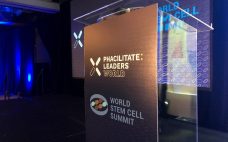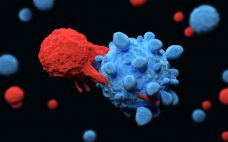The cell and gene therapy industry congregated in Miami to discuss supply chain strategies, regulatory rationale and the high manufacturing costs of advanced therapies. BioProcess Insider attended the Phacilitate Leaders World Summit, co-located with the World Stem Cell Summit, in Miami, Florida last week. The conference reflected on the first full year where three advanced therapies – Kymriah, Yescarta, and Luxturna – proved themselves on the commercial stage, heralding in a new frontier for regenerative medicines. But industry quickly rose above…

Therapeutic Class
Gamma Delta T GMP: TC Biopharm creates allogeneic cell banks
TC Biopharm has formulated its first Gamma Delta T (GDT) cell banks it says provides the firm with the technology to develop next-generation allogeneic CAR-T therapies. Supported by a âŹ4 million ($4.5 million) grant from the European Unionâs Horizon 2020, Scotland, UK-based biotech TC Biopharm has completed formulation of its first GDT cell banks intended to help rapidly progress its allogeneic therapies through the clinic. âGDT cells are a subset of white blood cells and are part of the innate…
Manufacturing costs the âbiggest threatâ to cell and gene therapies
This is the first time in history that we can make more effective medicines than we can afford, says Dark Horse Consulting. The Phacilitate conference took place in Miami this week, and in the plenary session Anthony Davies, founder of cell and gene therapy specialist firm Dark Horse Consulting, described the latest developments in the field of regenerative medicine. With the approvals of Kymriah (tisagenlecleucel), Yescarta (axicabtagene ciloleucel) and Luxturna (voretigene neparvovec) in 2017, âthis field finally had the year…
Lower infliximab revenues but J&J still holds 93% share
There have been two infliximab biosimilars available in the US for over a year, but Johnson & Johnson says reference biologic Remicade still holds a 93% volume share. In 2016, Pfizer launched Inflectra in the US. The following year, Merck & Co. launched Renflexis. With the ensuing price war, the infliximab biosimilars had been touted to end reference biologic Remicadeâs market dominance. But after the first full year with all three infliximab products on the market, J&J has reported in…
Alvotech raises $300m to advance biosimilar pipeline
After building out its manufacturing network, Iceland-based biosimilar developer has raised $300 million to support biosimilar R&D through a private bond offering. âA unit of Morgan Stanley from London was the lead investor acquiring approximately 75% of the total,â Alvotech pokesperson Halldor Kristmannsson told BioProcess Insider. âThey in turn syndicated the majority of this to a small number of institutional investors.â While Kristmannsson could not disclose the actual names of those investors, he said the remaining bonds were purchased by a combination…
COGS factor in Amgenâs exit from $540m Advaxis deal
Advaxis says Amgenâs withdrawal from a 2016 personalized immuno-oncology partnership is due to portfolio rationalization, high cost of goods, and the high-risk of commercialization. In 2016, Amgen teamed up with New Jersey-based Advaxis to co-develop and commercialize Advaxis’ investigational cancer immunotherapy ADXS-NEO in a deal worth up to $540 million (âŹ475 million). But after paying out $78 million, Amgen sent written notice last month alerting Advaxis it is terminating the partnership, effective from February 8, said Advexis in an SEC…
Trastuzumab triple: FDA approves Merck and Samsung Bioepis biosimilar
The FDA has approved Ontruzant, the third version of Rocheâs cancer drug Herceptin, and the second US biosimilar approval for Samsung Bioepis. The product will be marketed by Merck & Co. Europe approved Ontruzant in November 2017 as a biosimilar to Rocheâs Herceptin (trastuzumab), and 14 months on the US Food and Drug Administration (FDA) has given the oncology biologic the regulatory thumbs up. Ontruzant becomes the seventeenth biosimilar to be approved in the US, and the first of 2019.…
Pfizer: ‘Dropped preclinical programs do not change commitment to biosimilars’
In the latest example of a Big Biopharma reducing its biosimilar presence, Pfizer has abandoned five of its preclinical programs. The decision is part of an R&D review set to cut 150 jobs in Illinois and India. In November 2018, Bioprocess Insider reported claims that Big Pharma is set to exit from the biosimilars space over the next five years. Within weeks of publishing, Boehringer Ingelheim joined the likes of Germanyâs Merck KGaA and Novartis division Sandoz in abandoning elements…
Sanofi licensing deal validates Ab platform, says Biomunex
Sanofi has licensed the plug-and-play BiXAb platform to generate multi-specific antibodies. The deal validates the technology and will help fund Biomunexâs internal pipeline, says CEO Pierre-Emmanuel Gerard. Under terms of the deal, Biomunex will receive an initial upfront payment from fellow French firm Sanofi, and will be eligible to receive future milestone payments. Specific figures have not been disclosed. This is the first licensing deal for Biomunexâs BiXAb bi- and multi-specific antibody generation and optimization technology, and according to CEO…
Cell and gene therapies: FDA expects 10 to 20 approvals per year by 2025
The US FDA predicts it will receive more than 200 regenerative INDs per year from 2020 and will add 50 additional staff to review these products. There has been âa large upswing in the number of investigational new drug (IND) applicationsâ for cell and gene therapies received by the US Food and Drug Administration (FDA), commissioner Scott Gottlieb and Peter Marks, director of the Center for Biologics Evaluation and Research (CBER) said in a statement yesterday. The Agency has so…










